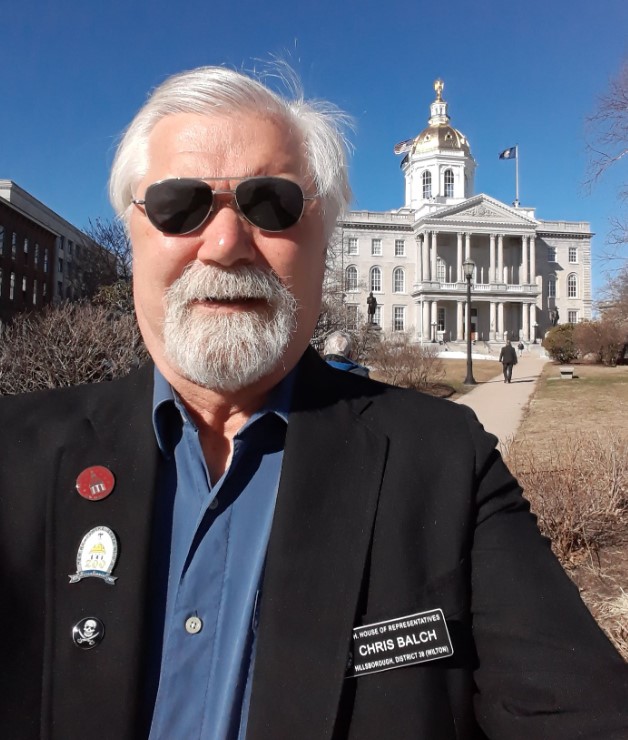By DAMIEN FISHER, InDepthNH.org
Chris Balch, a former state representative for Wilton, is charged with spiking trees on state land in a case of alleged environmental activism turned into eco-terrorism.
Balch, a Democrat who represented Antrim, Bennington, Francestown, Greenfield, Greenville, Hancock, Hillsborough, Lyndeborough, Wilton and Windsor, in the statehouse from 2018 to 2020, has a reputation as a staunch environmental activist. He is currently charged with two counts of criminal mischief and two counts of timber trespass from the incident, which happened earlier this year.
“This is not something that we’ve seen here in New England,” said Jack Savage, the president of the Society for the Protection of New Hampshire Forests. “This is the kind of eco-terrorism they have seen out west but not out here.”
Balch did not respond to calls and an email seeking comment. Representatives for the Division of Forests and Lands declined to discuss specifics in the case as Balch has yet to be arraigned on the charges.
According to information provided to Savage, Balch allegedly drove large metal spikes through trees in the Russell-Abbott State Forest, as well as trees in the adjacent Heald Tract, which is a forest property owned by the Society for the Protection of New Hampshire Forests.
Balch allegedly left paper signs on the trees that he spiked to alert any loggers of the potential danger. Savage said the paper signs do little good if they are blown off by the weather. The spikes are meant to damage lumber mill saw equipment when the trees are harvested. Savage said while the spikes can cause expensive damage to lumber mills, they can also cause serious injuries to people.
The state, as well as the Society for the Protection of New Hampshire Forests, will harvest wood from forests in order to fund operations as well as manage the land and create better conditions for wildlife, Savage said. Commercial lumber mills will use magnets to look for spikes or other metals, but if one gets through it could be disastrous.
“You’re looking at, at a minimum, some significant damage to the expensive equipment in the mill, and possible serious harm to a mill worker,” he said.
Also concerning is the fact that if some of the spiked trees are near a trail, they could prove a danger to volunteers, he said. If a spiked tree were to fall because of a storm or other event, and a volunteer went out to clear the trail with a chainsaw, they could be harmed.
“He could be putting people in danger years after the fact,” Savage said. “They could be injured when the saw hits the spike and kicks back at them.”
As a legislator Balch pushed for a ban on single-use plastics, a bill to restrict the use of plastic straws, a regional greenhouse gas initiative cap and trade program, and an official Climate Awareness Day proclamation, among other efforts.
Savage does not think much of activism that puts people’s lives in danger.
“It seems somewhat hypocritical to me to sit in your wooden house, print a sign on paper that comes from wood, and then go into a forest and drive spikes into trees and say it’s done for the trees,” Savage said. “Committing a criminal act seriously undermines the credibility of your cause, especially when you put other people in danger.”
Balch operates a boat building business in Wilton where he makes and sells wood boats.
The Heald Tract recently underwent some timber harvesting as part of the regular forest management, Savage said. The Society owns about 60,000 acres of forest throughout the state which it preserves and keeps open for the public. The state is about 73 percent forested, he said.





